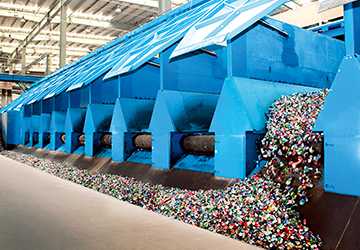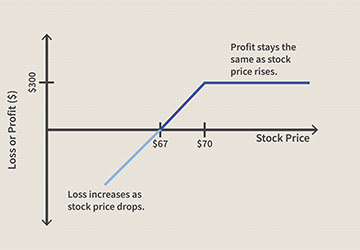Our civilization is increasingly embracing principles of sustainability, particularly within the sphere of waste management. Pioneering technologies spearhead this transition, transforming waste management from a terminal process to one of renewal. This exposition examines how technology in recycling and waste, intelligent waste management systems, and tech for environmental sustainability are revolutionizing our strategies for managing waste.

The Role of Technology in Recycling and Waste
Sophisticated Sorting Innovations
A significant advancement in recycling and waste technology involves sophisticated sorting technologies. These systems deploy advanced sensors and intricate algorithms to distinguish between materials with remarkable precision, significantly boosting the efficiency and accuracy of recycling endeavours.
● Artificial Intelligence and Machine Learning: These sophisticated tools enhance the differentiation of recyclables from general waste, minimizing contamination and augmenting the purity of recyclable materials.
● Optical Sorting Mechanisms: These systems utilize high-resolution imaging and near-infrared sensors to identify materials by their molecular composition and colouration, streamlining the recycling process.
Progressive Processing Methods
Revolutionary processing technologies have transformed the recycling landscape by enabling the reclamation of resources previously deemed non-recyclable.
● Chemical Recycling: This innovative process deconstructs waste into its essential chemical components, allowing for the perpetual recycling of materials such as plastics.
● Bio-digestion: By employing microorganisms to decompose organic waste, biogas, a renewable energy source, is produced.
Smart Waste Management Systems
IoT-Enhanced Waste Containers
Intelligent waste management systems incorporate IoT technology to make waste collection more efficient and data-driven. Equipped with sensors, smart bins can monitor waste levels, identify waste types, and optimize collection routes.
● Fill-Level Sensors: These devices notify waste management services when containers are nearing total capacity, enhancing collection efficiency and reducing operational costs.
● Waste Segregation Capabilities: Smart bins further facilitate the initial separation of recyclable from non-recyclable waste at the source.
Data-Driven Waste Management
Data is indispensable in intelligent waste management systems. Analyzing patterns and trends in waste production enables municipalities to enhance their waste-handling strategies.
● Predictive Analytics: Using historical data to project future waste accumulation helps cities manage waste proactively.
● Route Optimization Software: This software leverages real-time data to recommend the most efficient waste collection routes, conserving time and fuel.
Tech for Environmental Sustainability
Waste-to-Energy Technologies
Tech for environmental sustainability includes technologies that convert waste into energy, thus minimizing landfill usage and generating renewable energy.
● Incineration with Energy Recovery: Modern incinerators convert waste heat into electrical or thermal energy, drastically reducing greenhouse gas emissions.
● Anaerobic Digestion: This technology converts organic waste into biogas, an alternative to fossil fuels.
Advanced Material Recovery
Employing tech for environmental sustainability for material recovery ensures that waste products are reintegrated into the economy, curtailing the need for virgin material extraction and mitigating environmental impact.
● Precious Metal Reclamation: Cutting-edge technologies now facilitate the recovery of precious metals from electronic waste, which can be reused in manufacturing new devices.
● Plastic-to-Fuel Conversion: Pioneering methods now transform non-recyclable plastics into viable fuel, addressing the issue of plastic pollution.

Advanced Monitoring and Reporting Systems
Cutting-Edge Waste Analytics
Integrating sophisticated analytics in intelligent waste management systems enables real-time supervision and governance of waste flows. Advanced software applications process data instantaneously, fostering agile reactions to evolving waste scenarios.
● Sensor-Driven Insights: Embedded sensors deliver ongoing data regarding waste quantities and classifications, supporting swift modifications to operational tactics.
● Dashboard Reporting: Adaptable dashboards provide stakeholders with graphical depictions of waste statistics, enhancing rapid decision-making and bolstering regulatory adherence.
Drone Innovations in Waste Management
Uncrewed aerial vehicles, commonly known as drones, are crucial to technological advancements in recycling and waste. Their aerial imaging and sensing capabilities amplify the surveillance of landfill operations and expansive recycling activities.
● Landfill Optimization: Drones conduct aerial assessments that aid in refining the configuration and utilization of landfill sites, pinpointing underutilized sections or potential overflow areas.
● Environmental Surveillance: With sensors, drones identify noxious emissions or leachate occurrences at waste treatment facilities, guaranteeing prompt countermeasures.
Augmenting Waste Minimization Tactics
Fostering Circular Economy Models
Tech for environmental sustainability is instrumental in cultivating circular economy frameworks, where waste reduction and material reuse are paramount.
● Extending Material Lifecycles: Innovations that support the repair, renewal, and repurposing of items prolong their usability, curtailing waste creation.
● Resource Exchange Platforms: Technological advancements facilitate platforms for companies to exchange surplus materials and resources, diminishing waste and promoting cooperative resource utilization.
Progressive Packaging Techniques
Innovations in packaging are essential components of innovative waste management systems. Both biodegradable and reusable options are reshaping product life cycles and consumer behaviours.
● Consumable Packaging: Novel packaging solutions from organic, consumable materials present a sustainable alternative to conventional packaging.
● Refill and Return Schemes: Systems enabling consumers to return packaging for refills are minimizing the reliance on single-use packaging and propelling sustainability.
Exploiting Big Data for Ecological Impact
Prognostic Environmental Modeling
Advanced predictive frameworks utilize big data to anticipate waste's ecological impacts, permitting proactive interventions in smart waste management systems.
● Impact Projections: Leveraging extensive data sets, these models forecast the enduring effects of waste management practices, facilitating improved planning and lessening environmental footprints.
● Scenario Evaluation: By simulating diverse waste management approaches, decision-makers can envisage the results of various tactics and select the most ecologically beneficial one.
AI-Powered Recycling Innovations
Artificial intelligence revolutionizes recycling and waste management by optimizing recycling procedures and augmenting material reclamation rates.
● Material Identification AI: Sophisticated AI algorithms are meticulously calibrated to discern and categorize various materials, elevating recycling efficiency and mitigating contaminants.
● Automated Robotic Sorting: AI-driven robotic systems are strategically deployed for intricate sorting tasks surpassing human labour, accelerating recycling operations and enhancing precision and reliability.
Furthermore, AI integration facilitates real-time data analytics, enabling predictive maintenance and continuous optimization of recycling facilities. Additionally, AI-driven sensor technology enhances waste sorting by detecting and segregating materials based on various attributes such as composition and colour.
Conclusion
Facing the global challenges of waste management, the significance of technology in recycling and waste, intelligent waste management systems, and tech for environmental sustainability is paramount. These technologies enhance procedural efficiencies and promote ecological stewardship, proving that innovation is crucial to a sustainable future. By adopting these technological solutions, communities can transform waste from an environmental liability into a resource, fostering a cleaner, more sustainable environment.


